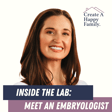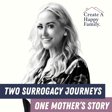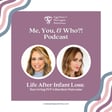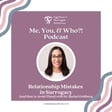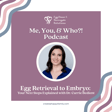
The IVF Blueprint: What Every Intended Parent, Surrogate & Egg Donor Needs to Know with Dr. Carrie Bedient
If you’ve ever felt lost in the world of IVF, surrogacy, or egg donation—this is the guide you’ve been waiting for.
Joining Whitney is Dr. Carrie Bedient, one of the three renowned fertility specialists behind the hit podcast Fertility Docs Uncensored and now co-author of their new book The IVF Blueprint—the very first comprehensive guide to IVF. Alongside Dr. Abby Eblen and Dr. Susan Hudson, she’s transformed years of clinical expertise and countless patient questions into an accessible, step-by-step roadmap for navigating fertility treatment.
You’ll hear why IVF isn’t linear—it’s a marathon of science and emotions—and why emotional support is just as critical as medical expertise. Dr. Bedient shares how the book feels like sitting at your kitchen table with three fertility doctor friends, ready to guide you through everything from IVF protocols and lifestyle choices to trending medications like GLP-1s.
Whether you’re considering egg donation, surrogacy, or IVF for yourself, this episode and book will give you the clarity, confidence, and community you need to take the next step.






